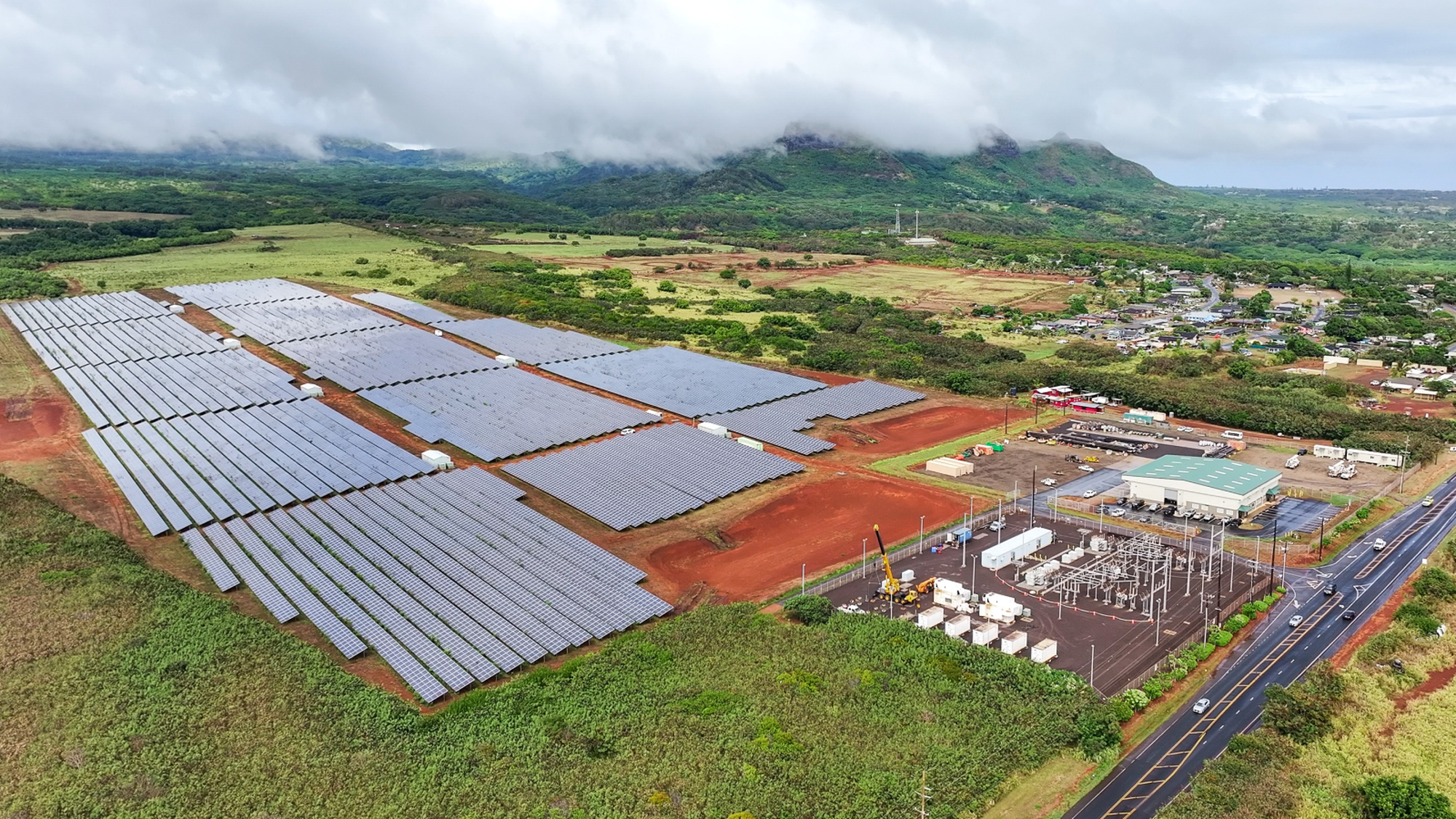
Nov 7, 2023
Decommissioning and recycling Kaua'i’s stationary energy storage systems
Read post

Every year, we recycle the equivalent of over 250,000 electric vehicles' worth of batteries, meaning more than 70% of the lithium-ion batteries and production scrap recycled in North America comes through our door. What makes lithium-ion batteries unique and the most sustainable, practical long-term solution for our transportation and energy needs is their nearly infinite recyclability, regardless of their condition. Our extensive experience in end-of-life management allows us to safely recover and recycle batteries from various sources, including those impacted from roadway incidents and natural disasters.
In emergency response situations, we partner with local and national entities to safely and swiftly recover any lithium-ion batteries involved. Recently, there was an accident on I-15, the corridor that connects Las Vegas and Los Angeles, when a truck carrying a container filled with lithium-ion batteries overturned. It was reported that the material inside the storage container went thermal, catching fire and closing the highway for almost two days.
Hazmat road accidents in the U.S. have more than doubled over the past decade, with the vast majority involving combustible fuels like gasoline and diesel. Earlier this year, a tanker truck carrying gasoline burst into flames in a multi-vehicle crash on I-95 in Connecticut, shutting down the major highway for several days. While all these incidents are severe, regardless of the source, a key difference with lithium-ion batteries is the ability to recover and ultimately reuse their materials. A metal atom doesn’t disappear or degrade when the battery reaches the end of its life. Even after damage from fires or floods, we can recover, on average, 95% of the metals contained in the battery and reuse them for future battery production— something that isn’t possible with fossil fuels.
Following the I-15 incident, we worked alongside Graymar Environmental, a local expert in contaminated material cleanup, to help properly clean up the site. Redwood was able to receive the container of batteries (estimated to weigh 70,000 lbs., enough to remake about 70 electric vehicles) and recover and recycle all the lithium-ion batteries involved.
In August 2023, following the devastating Maui wildfires, we worked with the Environmental Protection Agency (EPA) to collect, transport, and manage all the damaged lithium batteries from Lahaina. This was an unprecedented operation where we were able to recover tens of thousands of pounds of lithium-ion batteries ranging from residential stationary storage systems, golf carts, and electric vehicles. These batteries were safely transported to our Nevada facility and have since been recycled with the recovered nickel, cobalt, copper, and lithium returned back to the supply chain.
Natural disasters are occurring at unprecedented rates, with each year breaking records for fires, hurricanes, tornadoes, and floods. We extend our deepest condolences to those affected by the recent hurricanes in the Southeast. As we speak, the region is being impacted by Hurricane Milton and has barely begun to recover from Hurricane Helene just two weeks ago. Climate change continues to drive the increasing intensity and frequency of such storms, leaving communities to grapple with the devastating aftermath. As these communities embark on the long and challenging process of rebuilding, we anticipate a significant number of damaged EV and energy storage batteries. Our team offers resources for safely managing and recycling these lithium-ion batteries, supporting sustainable rebuilding efforts while preventing further environmental harm. We are here to assist first responders and ensure that battery management does not add to the challenges of recovery during this difficult time.
In these situations, Redwood deploys specially trained personnel and utilizes cutting-edge technology, often exceeding DOT requirements for packaging and transport to ensure the safest management of materials destined for recycling. By mobilizing quickly and responsibly, Redwood maximizes the sustainability of lithium-ion batteries at the end of their life while minimizing environmental impact from accidents and natural disasters. As we face an era marked by increasing climate challenges, it’s crucial for us to prioritize responsible battery management and support affected communities. Together, we can mitigate environmental impact, prioritize safety, and ensure that recovery efforts contribute to a more sustainable future.